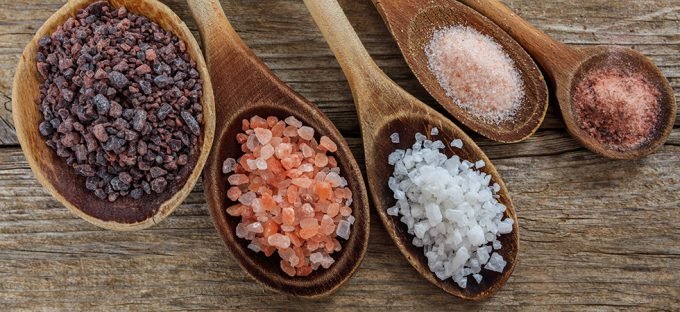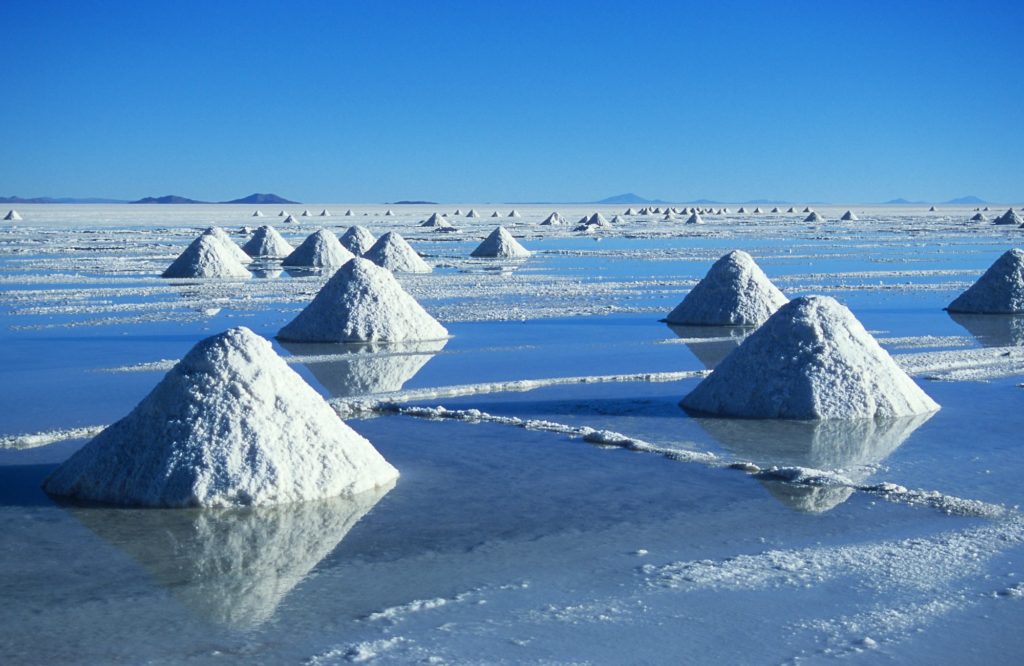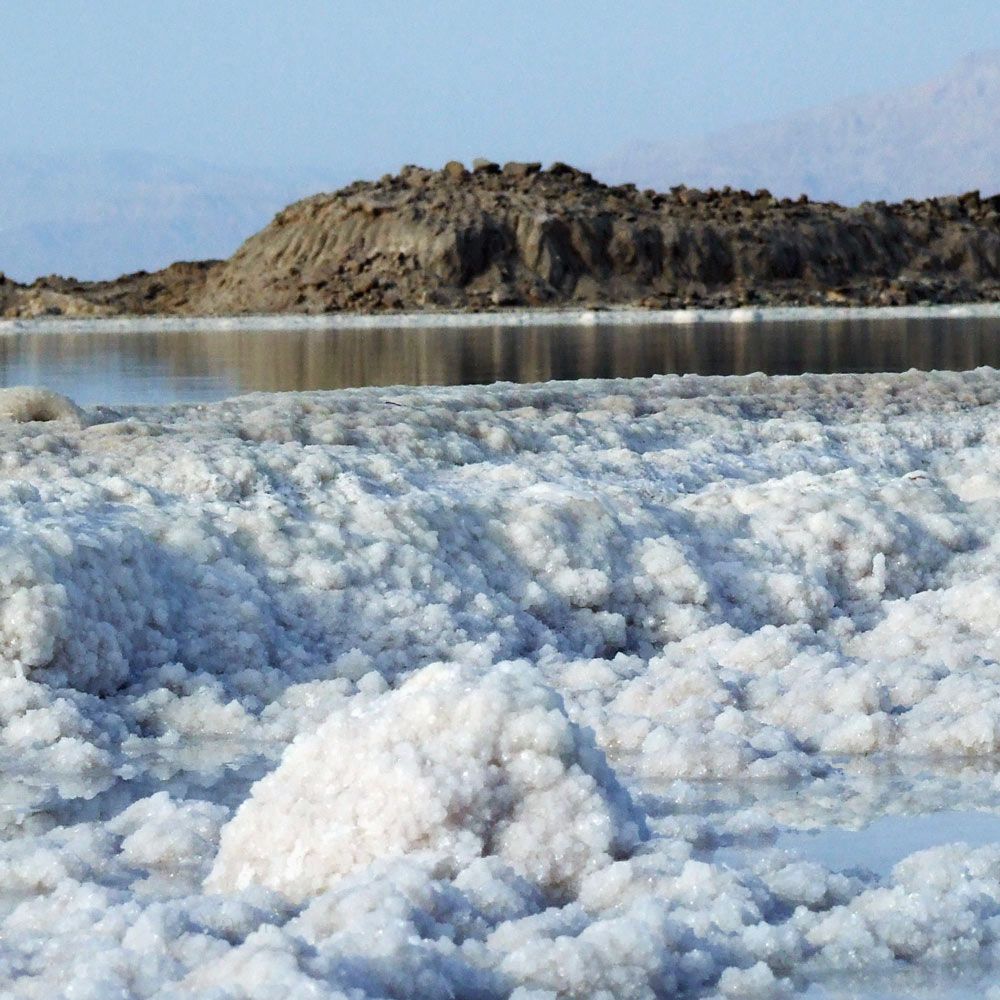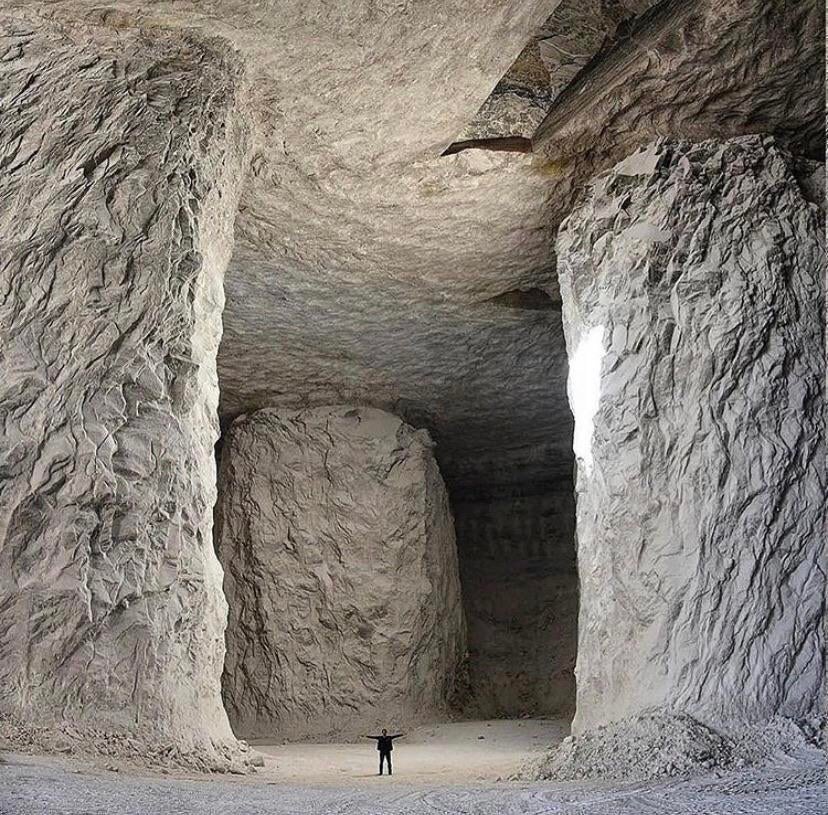“You are the salt of the earth, but if salt has lost its taste, how shall its saltiness be restored? It is no longer good for anything except to be thrown out and trampled under people’s feet.”
Matthew 5:13

Salt is undoubtedly one the most common chemical compounds on the earth. It comes in many forms and in multiple chemical combinations. The most common of which is NaCl – one positively charged atomic ion of sodium and one negatively charged atomic ion of chlorine. Seawater contains an average of 2.6% salt by weight, which amounts to an estimated 78 million metric tons per cubic kilometer of water in the oceans and seas of the world.
Throughout the history of the world, salt has had a wide variety of applications. The most obvious use of salt is to add flavor, or rather to enhance the natural flavor of food. Prior to refrigeration it was the most common preservative of meats. In fact, the word “sausage” is derived from a word that literally means “salted meat”. Our word “salad” originates from Romans using salt on leafy greens and vegetables prior to eating. It also where we get the term “salivate.” If we “oversalt” our food, we ruin it. If we don’t use enough salt in cooking, the food is bland and tasteless. It’s all about the right amount of seasoning to perfect the dish.
It has also been used for medicinal purposes as an antiseptic. It has been used in hygiene and cosmetics as an exfoliant in soaps to scrub off dead skin cells. It is used as a bonding agent in pottery and as a chemical agent in textiles, leather tanning, fabric dyes, and bleaches. Salt is often used in dry, arid places in the world to stimulate water retention.
Salt has often been used in various religious rituals as a symbol of purity. There are numerous references to covenants in the Old Testament that were sealed with salt. The word “salvation” also comes from this element of spiritual purification.
There are also military uses for salt. The term “salting the earth” is a reference to a practice of spreading large amounts of salt on the grounds of conquered lands in order to curse the ground and prevent the growing of healthy crops. Salt is used in the production of gunpowder and dynamite.
Salt is also important to our health and diets, but in proper amounts. Too little salt in our diets can lead to blockages in the small intestines, underactive thyroid, heart failure, higher propensity for sunburn, and diarrhea. It can lead to lethargic brain activity resulting in muscle twitches, seizures, cramps, loss of consciousness, coma, and even death in extreme situations. In fact, it is reported that more of Napoleon’s troops died during the retreat from Moscow in 1812 than the invasion of Moscow itself because their wounds were not properly healing due to a lack of salt in their diets.
Too much salt in our diets has been link to osteoporosis, kidney disease, and hypertension – leading to cardiovascular disease and stroke. Excessive salt in the bloods causes the body to pull more water into the bloodstream, thus increasing the volume of blood within the cardiovascular system. This puts more strain on the heart to pump the greater volume of blood, stretching the walls of blood vessels, leading to aneurysms and easy bruising.
For thousands of years, and still to this day in certain parts of the world, salt has strong economic uses beyond mere commodity as a form of currency. In fact, salt was at one time more valuable than gold due to the difficult process of extracting salt from seawater or mining from rock. The word “salary” and the phrase “worth your salt” comes from this use of salt as money.
And salt that has become damaged by misuse or neglect to the point that it has lost its usefulness cannot be made salty again. It is reduced to nothing more than a useless, grainy rock. Its purpose is then lost, which is why it is so important that salt is kept in place that it easily accessible, but secured from corruption by pests and excess water.

Most importantly, in order for salt to be usable, one of two processes has to happen – and in some cases – both. First, there is the process of extracting salt out of sea water. It’s a difficult and time-consuming process, but it is a process that yields tremendous results. Sometimes it happens naturally as is apparent around the edges of the Dead Sea.

The other process is by mining – which requires extracting salt out of the earth and the large rocks of salt have to be broken until it is small enough to be usable by the consumer. In rare cases, even in the case of extraction of salt from seawater, this breaking process is still required to pulverize the salt into small enough grains to be of value.

But just like gold, salt at its core is nothing more than a rock. It has no inherent value of its own beyond that which we place upon it. Today, salt is so common that it is rarely used as currency in industrialized countries. In fact, while gold does have value as a commodity for jewelry, it holds very little value as a liquid currency as even our own American dollars are no longer backed by the gold standard – but simply by supply and demand of government issued legal tender.
When Jesus speaks of us being the “salt of the earth”, He is speaking to our value. If we place our value and worth in the marketplace of the world, while over time we may see some profit, eventually we become so common that we are worthless. We lose our flavor and thus our value to society. The people of Israel know this imagery all too well as they were now an occupied people by the Roman Empire, cast aside as a backwater land with weird customs, but just valuable enough due to its location at the junction of three continents – Europe, Africa, and Asia – to retain worth to the Empire.
But in God’s economy you are His most precious commodity. You are His most precious jewel. He wants to use you to bring value and flavor to the world. He wants to use you to bring healing to a hurting world and scrape out that which is dead and lifeless. He wants to use you to destroy the enemy of this world. And He wants to use you to be an agent of purification in the world.
At the same time, we must be careful not to be “too salty” to the point that we drive people away. Or not salty enough so that people are uninspired to eat more at the table of grace. We must exercise discernment to the point that we provide just enough salt for the given situation so that we sate the appetite and leave them hungering for more.
But most importantly, we must be extracted from the world, set apart, and broken so that we can be usable for the Kingdom. Our hearts must be broken for the things that break the heart of God. Otherwise, our hearts are nothing but a useless, hardened stone that beats only for ourselves.